 W
WArduino is an open-source hardware and software company, project and user community that designs and manufactures single-board microcontrollers and microcontroller kits for building digital devices. Its hardware products are licensed under a CC-BY-SA license, while software is licensed under the GNU Lesser General Public License (LGPL) or the GNU General Public License (GPL), permitting the manufacture of Arduino boards and software distribution by anyone. Arduino boards are available commercially from the official website or through authorized distributors.
 W
WAn Arduinome is a MIDI controller device that mimics the Monome using the Arduino physical computing platform. The plans for the Arduinome are released under an open source, non-commercial use only license. The Arduinome platform is noted for providing a lower cost alternative to the Monome and allows greater hackability of the interface.
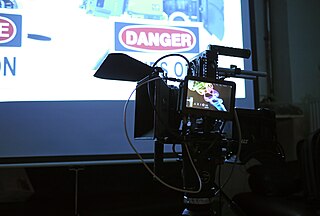 W
WAXIOM is an open hardware and free software digital cinema camera family of devices being developed by a DIY community around the apertus° project.
 W
WThe Bus Pirate is a universal bus interface device designed for programming, debugging, and analyzing microcontrollers and other ICs. It was developed as an open-source hardware and software project.
 W
WElphel, Inc. designs and manufactures open hardware and free software cameras. The company was founded in 2001 by Russian physicist Andrey Filippov, who emigrated to the US in 1995.
 W
WReleased in 2006, The Fab@Home was the first multi-material 3D printer available to the public, and one of the first two open-source DIY 3D printers in the world, at a time when all other additive manufacturing machines were still proprietary. The Fab@Home and the RepRap are credited with sparking the consumer 3D Printing revolution.
 W
WFarmBot is an open source precision agriculture CNC farming project consisting of a Cartesian coordinate robot farming machine, software and documentation including a farming data repository. The project aims to "Create an open and accessible technology aiding everyone to grow food and to grow food for everyone." FarmBot is an open source project allowing hardware, software and documentation modifications and additions from users.
 W
WGoWarrior is an open-source and community-supported computing platform. GoWarrior is designed for the world of makers, hackers, educators, hobbyists, and newbies to build electronics projects. It offers a complete package of hardware, software and cloud service.
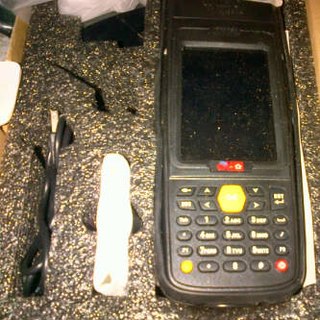 W
WUsed in Voting, the INEC card reader is a portable Electronic voting authentication device configured to read only the Permanent Voter Cards (PVCs) issued by the Independent National Electoral Commission (INEC). The card reader was designed specifically for the accreditation process, authentication of eligible voters before voting. The machine was configured to read only the PVCs of a particular polling unit and can only work on election day.
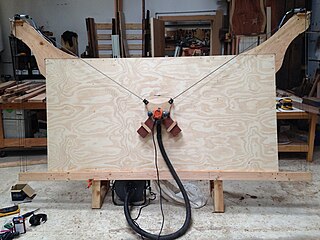 W
WMaslow CNC is an open-source CNC router project. It is the only commercially available vertical CNC router and is notable for its low cost of US$500.
 W
WMonome is an Upstate New York-based company, founded by Brian Crabtree and Kelli Cain, that produces sound modules and MIDI controllers. Monome is also the name of their initial product, a grid-based controller that is now sometimes simply referred to as grid.
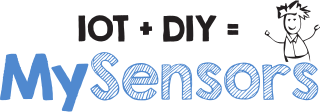 W
WMySensors is a free and open source DIY software framework for wireless IoT devices allowing devices to communicate using radio transmitters. The library was originally developed for the Arduino platform.
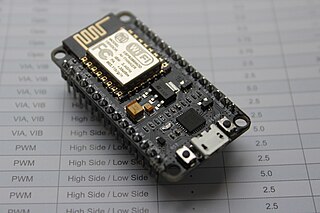 W
WNodeMCU is a low-cost open source IoT platform. It initially included firmware which runs on the ESP8266 Wi-Fi SoC from Espressif Systems, and hardware which was based on the ESP-12 module. Later, support for the ESP32 32-bit MCU was added.
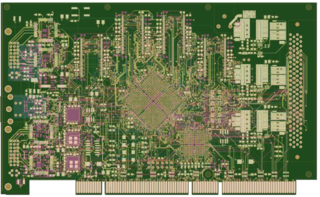 W
WThe Open Graphics Project (OGP) was founded with the goal to design an open-source hardware / open architecture and standard for graphics cards, primarily targeting free software / open-source operating systems. The project created a reprogrammable development and prototyping board and had aimed to eventually produce a full-featured and competitive end-user graphics card.
 W
WOpenBCI is an open-source brain-computer interface platform, created by Joel Murphy and Conor Russomanno, after a successful Kickstarter campaign in late 2013.
 W
WOpenCores is a community developing digital open-source hardware through electronic design automation (EDA), with a similar ethos as the free software movement. OpenCores hopes to eliminate redundant design work and slash development costs. A number of companies have been reported as adopting OpenCores IP in chips, or as adjuncts to EDA tools. OpenCores is also cited from time to time in the electronics press as an example of open source in the electronics hardware community.
 W
WThe Prusa i3 series is an open-source fused deposition modeling 3D printer, manufactured by Czech company Prusa Research. Part of the RepRap project, it is the most used desktop 3D printer for parts ordered through the 3D Hubs fee-for-service business, and in 2016 it was the most used 3D printer in the world. The Prusa i3 was designed by Josef Průša in 2012 with the Prusa i3 MK2 being released in 2016 and the MK2S being released in 2017. The Prusa i3 MK3 was released in September 2017 with significant improvements over the prior models. A subsequent model with additional refinements to the extruder body and filament sensor was released in February 2019 as the Prusa i3 MK3S. The Prusa i3's comparable low cost and ease of construction and modification has made it popular in education and with hobbyists and professionals. Due to the printer being open source there have been many variants produced by companies and individuals worldwide, and like many other RepRap printers the Prusa i3 is capable of printing some of its own parts.
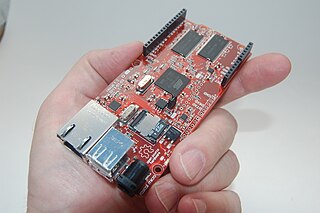 W
WRascal is a single-board computer. It is designed by Brandon Stafford and sold by Rascal Micro LLC in Somerville, Massachusetts.
 W
WThe RepRap Fisher is an open-source fused deposition modeling 3D printer and is part of the RepRap project. The RepRap Fisher is named after the English statistician and biologist Ronald Fisher, it was designed by RepRapPro.
 W
WThe RepRap Morgan is an open-source fused deposition modeling 3D printer. The Morgan is part of the RepRap project and has an unusual SCARA arm design. The first Morgan printer was designed by Quentin Harley, a South African engineer at the House4Hack Makerspace in Centurion. The SCARA arm design was developed due to the lack of access to components of existing 3D printer designs in South Africa and their relatively high cost. In 2013 the Morgan won the HumanityPlus Uplift Personal Manufacturing Prize and third place in the Gauteng Accelerator Program.
 W
WThe RepRap Ormerod is an open-source fused deposition modeling 3D printer and is part of the RepRap project. The RepRap Ormerod is named after the English entomologist Eleanor Anne Ormerod, it was designed by RepRapPro. There have been two versions of the Ormerod, the Ormerod 1 was released in December 2013 and the Ormerod 2 released in December 2014.
 W
WThe RepRap Snappy is an open-source fused deposition modeling 3D printer, part of the RepRap project, it is the most self replicating 3D printer in the world.
 W
WRONJA is a free-space optical communication system originating in the Czech Republic, developed by Karel Kulhavý of Twibright Labs and released in 2001. It transmits data wirelessly using beams of light. Ronja can be used to create a 10 Mbit/s full duplex Ethernet point-to-point link. It has been estimated that 1000 to 2000 links have been built worldwide
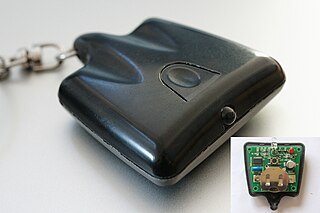 W
WTV-B-Gone is a universal remote control device for turning off a large majority—about 85%—of the available brands of television sets in 2015. It was created to allow people in a public place to turn off nearby television sets. Its inventor has referred to it as "an environmental management device". The device is part of a key-chain, and, like other remote devices, is battery-powered. Although it can require up to 72 seconds for the device to find the proper code for a particular television receiver, the most popular televisions turn off in the first few seconds.
 W
WUniversal Software Radio Peripheral (USRP) is a range of software-defined radios designed and sold by Ettus Research and its parent company, National Instruments. Developed by a team led by Matt Ettus, the USRP product family is intended to be a comparatively inexpensive hardware platform for software radio, and is commonly used by research labs, universities, and hobbyists.
 W
WWikiReader was a project to deliver an offline, text-only version of Wikipedia on a mobile device. The project was sponsored by Openmoko and made by Pandigital, and its source code has been released.
 W
WThe Wishbone Bus is an open source hardware computer bus intended to let the parts of an integrated circuit communicate with each other. The aim is to allow the connection of differing cores to each other inside of a chip. The Wishbone Bus is used by many designs in the OpenCores project.